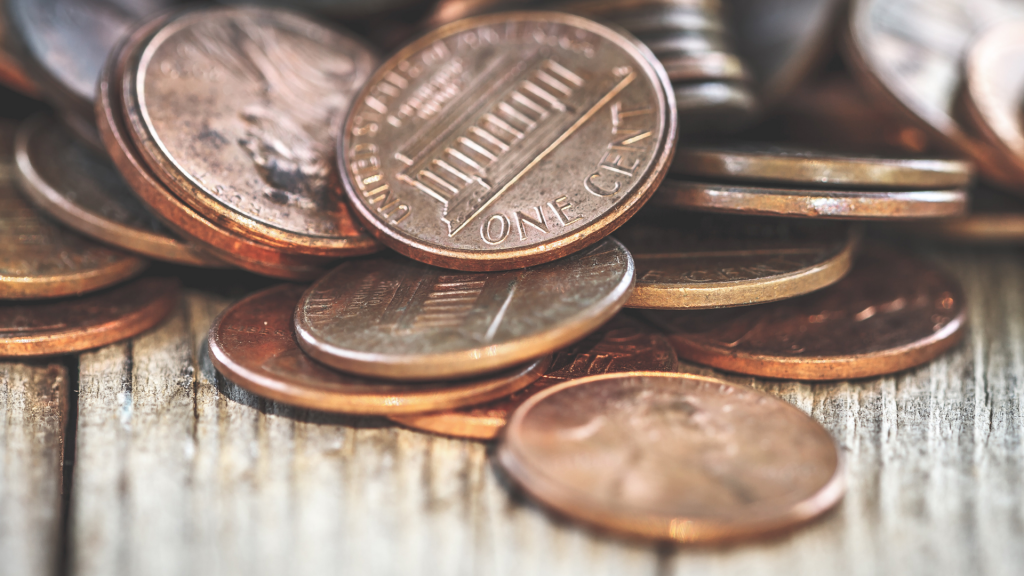I've been doing the cryptocurrency thing since 2011. People are always asking me how to choose cryptocurrencies. Here's how I decide which cryptos to invest in.
Cryptocurrencies and blockchain technology are taking the world by storm right now. Chances are, you're wondering if it makes sense for you to start investing in cryptocurrencies (or maybe even NFTs). But is Bitcoin the way to go? Or should you look into something else? One of the most common questions I'm asked is the process I use for deciding what to invest in.
@mirandamarquit I keep 8% of my portfolio in #crypto – what do you have? #shib #btc #doge #eth 🚀🚀
Honestly, it's not all that different from deciding what other assets to invest in. If you're interested, though, here's a quick guide on how to choose cryptocurrencies. Note that I've got my own risk tolerance, and investing in cryptocurrencies might not be the right move for you. Do your due diligence and consider your financial situation before investing in any cryptocurrency.
How to choose cryptocurrencies: 3 things to consider
When researching a new token or figuring out whether I want to put money into an established coin, I generally consider three factors.
1. Use case
For me, investing in a cryptocurrency starts with the use case. Admittedly, when I received my first bitcoin (BTC) in 2011, I wasn't thinking about the use case much beyond, “this is a cool new payment system.” Blockchain technology, though, is more than just a payment system. Some interesting underlying use cases can indicate a token has a better chance of long-term viability.
When Ethereum (ETH) came onto the scene, I was immediately intrigued. Ethereum wasn't just about using ether as an alternative payment. The Ethereum blockchain allows for the execution of smart contracts. It's also possible to build apps (called dapps) on the Ethereum blockchain. You can create games and virtual worlds using the Ethereum blockchain. Issue your own crypto token using Ethereum. It's versatile and has several purposes, including making non-fungible tokens (NFTs).
What makes this so interesting to me is that Ethereum could change the way we conduct business. You don't need to deal with real estate escrow when you have a smart contract. Hell, you could complete the real estate transaction, and then the new deed to the home could be sent to you in NFT format. It's much faster and more convenient than the current way such business matters are handled.
Before investing in a cryptocurrency, I look at the underlying use case to determine what it does. Probably about 85% of my crypto holdings are tokens that have a use case beyond “try to make fast money with the new hotness.”
Cryptocurrencies with exciting use cases
Other tokens that I invest in and find interesting include:
- Solana (SOL): A smart contract blockchain sometimes called an “Ethereum killer.” I like the smart contract aspect, the ability to build dapps, NFTs, and Solana's focus on energy sustainability.
- Polkadot (DOT): Offers a way to transfer digital assets between blockchains — not just tokens. Additionally, you can use the Polkadot ecosystem to create your own blockchain.
- Chainlink (LINK): Connect any smart contract on any blockchain with off-chain services and data.
- Uniswap (UNI): Decentralized exchange that allows you to create your own liquidity pool and even allows you to launch your own token if you wish. Provides an ecosystem for decentralized finance.
- Tezos (XTZ): Blockchain ecosystem designed for scalability and meant to be a part of Web 3. It offers smart contract capability and can be used for decentralized finance. It also offers staking, which means that I receive additional tokens for holding Tezos. I moved some of the money in my not-so-high-yield savings account to Tezos and so far it's earned a much higher APY.
- Decentraland (MANA): A virtual world and game. It got a lot of attention with the launch of the idea of the metaverse.
2. Liquidity, or how easy it is to trade
Another consideration as you decide how to choose cryptocurrencies is how easy it is to trade. While there are more than 4,000 cryptocurrency tokens out there, not all of them are easy to trade. Some of them can't easily be converted back into fiat currency. For example, you might be interested in buying FEG, which is deflationary in nature and is meant to power a low-cost, high-speed transaction network. However, you can't trade FEG on major centralized exchange like Coinbase. Instead, you need to make sure you have a compatible wallet that you can connect to a decentralized exchange that offers FEG and then trade.
You might also need another cryptocurrency, like Ethereum, to trade obscure tokens. So, you'd need to get Ethereum, and then use the Ethereum to purchase the other coin.
If you really like a coin, and you want to buy it, you might not care about how easy it is to buy and sell. On the other hand, though, as you're deciding how to choose cryptocurrencies, you might decide that you want a simple process. In that case, a centralized exchange like Coinbase or Gemini can be a good choice.
You have access to fewer cryptos on these centralized exchanges, but the available coins are popular, more frequently traded, and the process is much quicker and easier. Additionally, you can be reasonably sure that tokens you find on an exchange like Coinbase aren't scam coins. Tokens listed on a centralized exchange go through a vetting process. Additionally, the exchange provides liquidity, so if you decide to sell your tokens for fiat currency, it's an almost instant transaction. You don't have to worry about trying to match with someone else to sell your coins and get dollars back into your account.
Start with a centralized exchange
For beginners, it might make sense to start with Coinbase or Gemini and buy coins with high trading volume. Once you get a better idea of what you're looking for, or if you decide you want to branch out into less-established coins, you can get a different wallet and use a decentralized exchange to buy other tokens. Just make sure you're careful to avoid scams.
One downside of a mainstream or centralized exchange is that you might pay a higher fee. Pay attention to fees when you're buying and selling. Also, understand that you can reduce your fees on an exchange like Coinbase by directly exchanging one cryptocurrency for another, rather than first converting a crypto to a fiat currency and then using that to buy something else.
3. Have a little fun
Sometimes it's just fun to have a crypto. Does Dogecoin (DOGE), which started as a joke, really make sense in the long run? Nah. But did I have fun with it for a few weeks? Sure did! I also have Shiba Inu (SHIB) right now and I have a friend who got into Cum Rocket (CUM). It's silly and it's kind of fun. What am I going to do with 4 million units of SHIB? Nothing. When I first bought in, I had 11 million units. The price spiked and I took my profits and exchanged 8 million SHIB for more SOL and UNI. I more than quadrupled what I put in, stuck the money somewhere else, and kept some. If SHIB ever reaches 25 cents, I'll be a millionaire. (Real talk: I don't expect this to actually happen.)
There's nothing wrong with getting in on a coin because it's fun and it's the new hotness. However, you also need to be realistic about the chances of you becoming a crypto millionaire. I might know how to choose cryptocurrencies, but I also know that most of my wealth now and in the future is due to index products and my business. Crypto is fun, and I've made good money — especially since I got in early — but I don't expect it to be my main source of financial freedom in the future.
How to choose cryptocurrencies: where do they belong in your portfolio?
Before you rush out and just buy some crypto, take a step back. When you add any asset class to your portfolio, it's important to know why it's there. What's the purpose? Even though I have some fun things in my investment portfolio, most of what I have is boring AF.
@mirandamarquit Most of my portfolio is boring AF. But there is a tiny bit of party in there. Yes, I have #crypto – and that included 💩coins. #investing #money
I have crypto because I think it's interesting and to add a little growth and diversity to my portfolio. However, it accounts for anywhere between 7% and 10% of my portfolio, depending on cryptocurrency prices on any given day. The part of my portfolio designed for long-term wealth-building does not make use of crypto. That part of my portfolio involves mostly index products. Same with my travel fund. I like running experiments and trying things, but when it comes to money that I know I'll need, I keep it boring.
Before you start buying cryptocurrencies — or NFTs for that matter — think about where they fit in your portfolio. Understand that cryptocurrencies have their own level of risk because:
- They're a new asset class. It hasn't been tested. We don't know if cryptocurrencies will catch on or if blockchain technology will become the norm.
- It's hard to know which cryptos will “win.” Bitcoin is the best-known crypto, but it's old and clunky and even with upgrades other cryptos have surpassed it in terms of usefulness and practicality. Could one of these other cryptos become the norm? Who knows. If you put a lot of money into the “wrong” crypto, you could lose out.
- Prices are extremely volatile. It's not uncommon for there to be swings of more than 5% on any given day. Relying on crypto for gains could lead to losses.
- There's no way to know how regulation will impact the blockchain and cryptocurrencies. China has been cracking down and pushing the digital yuan. The U.S. Federal Reserve is investigating an official digital dollar. What happens to crypto as we know it if a fiat version does just as well and does all the things we expect cryptocurrency to do?
Bottom line
Investing in cryptocurrencies can be fun and profitable. However, you need to know why you're investing in them. Don't forget to limit your exposure to them in your portfolio. And, of course, don't risk money you can't afford to lose. Cryptocurrencies should be part of an overall financial plan and strategy, not your only hope for financial freedom.



